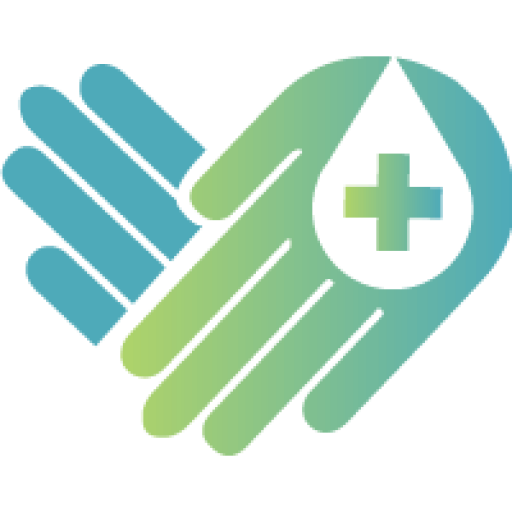How to become a nurse in Nevada
The process of obtaining a nursing license in the state of Nevada is quite similar to many other places around the country. New nurses must go through the licensure by examination process, which entails taking the NCLEX after graduating from an approved nursing program.
The vast majority of registered nurses in Nevada are in the Las Vegas-Henderson-Paradise metropolitan area according to data from the U.S. Bureau of Labor Statistics (BLS), where about 75% of the state’s nurses work. If you’re thinking about becoming a nurse anywhere in Nevada, you should educate yourself on the policies and procedures set by the Nevada State Board of Nursing (NSBN), which is responsible for licensing nurses.
Steps to become a nurse in Nevada
Graduate from an approved nursing program.

If you want to be a registered nurse (RN) in Nevada, you’ll first need to graduate from an approved nursing program. This can be either an associate degree in nursing (ADN), a bachelor’s of science in nursing (BSN) or in some cases an accelerated bachelor’s of science in nursing (ABSN). You must have a high school diploma or equivalent education such as a GED in order to be admitted to nursing programs. RN applicants in Nevada must complete a minimum of 500 direct client care hours across the lifespan—this will most likely be completed as part of your education program, but important to keep in mind before you apply for licensure. If you earn your nursing degree outside of Nevada, you must include evidence of clinical hours broken down for each course along with your official transcript as part of your licensure application.
Submit an RN licensure application.

After or as you are nearing graduation, it’s time to submit your online application for licensure to the Board of Nursing. Paying a $190 fee is required as part of the application ($170 for licensed practical nurses or LPNs).
Complete a background check.

After submitting your online application to VBON, you’ll receive a confirmation receipt which contains a Fieldprint code required to register for fingerprinting through Fieldprint VA. These fingerprints are used to run a criminal background check on you.
Register for the NCLEX.

Register online to take the NCLEX through Pearson Vue. Do this immediately after filing your online licensure application with VBON or your authorization to test (ATT) could be delayed.
Pass the NCLEX.

Once you received your ATT from Pearson Vue, you must take the NCLEX within the allotted window of time, which is typically about 90 days. Once your passing results are processed and VBON verifies that they have received all necessary items, you will be issued an RN license.
Keep up your continuing education requirements.

Nurses in Nevada must complete a continued competency activity or course in order to renew their license. Nursing licenses must be renewed every two years. VBON maintains a list of acceptable activities or courses to satisfy their continued competency requirements. Some nurses earn professional certification in specialty nursing areas in order to advance their careers and continue to grow in the field.
Acquiring an RN license in Nevada
The biggest step in becoming a nurse in Nevada begins with your education. New nurses that do not already have a license elsewhere must attend an accredited nursing program that prepares students to take the NCLEX-RN (or NCLEX-PN for LPNs). For most prospective RNs, this will be either an associate degree in nursing (ADN) or a bachelor’s of science in nursing (BSN).
Some associate degree programs may be called an associate of science degree in nursing (ASN) or an associate of applied science in nursing (AASN). Although the curricular focus of these programs may vary slightly, they all fall under the umbrella of associate degrees in nursing and prepare students to take the NCLEX.
“For licensure purposes, we don’t have a preference. It’s either associate or bachelor’s,” said Gail Trujillo, Director of Licensure, Certification and Human Resources for NSBN.
“I tell people, you have to look at what’s best for you. What’s best for you financially, what’s best for you as it relates to your long-term goals. You want to look at the accreditation of the school and the NCLEX pass rates of the school,” said Michelle Johnson, the Director of Nursing Education for the NSBN.
Johnson said that she highly recommends that nursing students take advantage of Nevada’s nurse apprenticeship program so that new nurses can get a taste of what the pace of work is like before being thrust into their clinical experiences. “We have a very robust nurse apprentice program. One reason to recommend that is because most of our schools don’t have preceptorships. And even though the preceptorship is short term, the nurse apprentice program is more long term over multiple semesters, whereas a preceptorship is a few weeks to one semester.” These apprenticeships often lead to employment offers once the nurse graduates and gets their license.
After graduation
As you get close to graduating or once you’ve graduated, your next step is to create an account through the Nevada Nurse Portal. This is where you’ll apply for an RN license from the Nevada State Board of Nursing. Once you submit an application, you must register for the NCLEX through Pearson Vue and get your fingerprints taken. The NSBN encourages applicants to submit fingerprints electronically by getting them taken at either of their offices (one in Reno and another in Las Vegas) or at another approved location.
If you get your fingerprints taken anywhere besides their two offices, you must submit an additional form along with your fingerprints to the NSBN. Scheduling a fingerprinting appointment and getting them sent to the NSBN can take some time, which is why the NSBN suggests you do this step as early as possible in the application process.
Once the NSBN verifies that you’ve graduated from a nursing education program, submitted an application online and registered for the NCLEX, you’ll receive an authorization to test (ATT) from Pearson VUE to take the NCLEX. From that point you have a 90-day window to take the test. You’ll get your RN license once you pass.
Foreign-educated nurses
Nurses that are educated outside of the United States have a few more steps to get their RN license.
First, the nurse must have their education evaluated by submitting one of the following to the Board:
- CES Professional Report from Commission on Graduates of Foreign Nursing Schools (CGFNS)
- Nursing Licensure Evaluation Report from the International Education Research Foundation (IERF)
- Josef and Silny Report of Evaluation of Educational Credentials
Second, the nurse must take and pass one of the following English language proficiency exams:
- TOEFL iBT
- Pearson Test of English Academic
- International English Language Testing System (IELTS) Academic
Nurses that were educated in Australia, United Kingdom, New Zealand, Canada (except Quebec), Ireland, Trinidad, Tobago, South Africa, Ghana, Jamaica or Barbados do not have to validate their English language proficiency skills to obtain a license in Nevada.
How long does it take to become a nurse in Nevada?
The time it takes to get a nursing license in Nevada depends on a few things, such as whether this is your first nursing license or whether you are transferring from another state. For most new nurses earning either an associate or bachelor’s degree in nursing, it takes approximately two and a half to four and a half years total to complete your education, submit your licensure application and materials, take the NCLEX and have your license approved. You can expect the essential steps in the licensure process to take the following amounts of time:
- Complete nursing education program: approximately 2-4 years.
- Submit online application to the NSBN, register for fingerprints, and register for NCLEX: About an hour.
- Receive authorization to test (ATT) and take the NCLEX: You have 90 days to take the NCLEX in Nevada after receiving your ATT.
- Receive test results and get your license: the NSBN says you must wait approximately one week after taking the test for the NSBN to process your test results and approve your license.
Continuing education requirements for nurses in Nevada
RNs and LPNs in Nevada alike must complete 30 continuing education units (CEs) each time they renew their license, which is every two years. This must include a two-hour cultural competency course and a one-time four-hour bioterrorism course.
On the first renewal cycle following graduation only, nurses are exempt from completing the 30 CEs. However, they do need to do the cultural competency and bioterrorism courses.
“Our cultural competency and CE required is different because it’s very, very specific,” Johnson said. “You just can’t go and get a cultural competency CE course from anywhere. We have a very specific list on our website.” The same applies for the bioterrorism course, which must be conducted by one of their approved providers.
Is Nevada a compact state?
No, Nevada is not a member of the Nurse Licensure Compact (NLC). If you are seeking a nursing licensure in Nevada and already hold a license or certification in another state, you have to apply for a new license with the NSBN. This can be done through their licensure by endorsement process. This process is practically the same as applying for a license for the first time, except that you don’t have to take the NCLEX again.
The NSBN states on their website that they will again attempt to enact the NLC during the 2023 legislative session.
“We’ve been trying to be part of the Compact for probably ten years,” said Cathy Dinauer, Executive Director of the NSBN. “We currently have a bill draft in legislation, so we’re just waiting for an assignment of a bill number. We do feel like we have a lot more momentum, and we are about to enter next week into our legislative session.”
Nurse job outlook for Nevada
Nationwide, the employment of registered nurses is expected to grow 5.6% through 2032, about as fast as average across all occupations.
Nationwide nursing shortages exacerbated by the COVID-19 pandemic have affected Nevada as well. This has prompted the NSBN to try enacting the Nurse Licensure Compact to accelerate the licensure process and get nurses where they’re needed fast, a move which is supported by the Nevada Nurses Association and Nevada Hospital Association. If this can be achieved, it may make it significantly easier for nurses to practice in Nevada and fill the employment gap.
Dinauer also pointed out that Nevada faces some employment competition from its neighbor, California. Although the cost of living is higher in California, jobs tend to pay more too. There are many nurse graduates in Nevada that end up moving to California to seek out higher-paying jobs and end up contributing to the nurse shortage.
Median salary for nurses in Nevada
Registered nurses in Nevada had an annual median wage of $96,210, according to the BLS. Although that number may not be as high as states like California and Hawaii which have six-figure annual mean wages for nurses, Nevada still has a seat in the BLS’s highest earning bracket for RNs ($77,160-$132,010). The Las Vegas metropolitan area has the highest mean wage in the state, but is closely followed by the only other two areas in the state: Reno and the Nevada nonmetropolitan area.
Find out how to become a nurse in your state
The process of becoming a nurse is different depending on the state in which you are seeking licensure. Each state has different requirements and standards that you should be aware of.
Here are some of the top nursing states in the U.S. and the steps to become a nurse in each:
Useful organizations and resources for Nevada nurses
The Nevada State Board of Nursing (NSBN) is the regulatory body responsible for issuing nursing licenses in the state.
The Nevada Nurses Association (NNA), the state-level branch of the American Nurses Association (ANA), provides a wealth of benefits for participating members including continuing education and networking opportunities, discounts and an automatic membership with the ANA.
The Nevada Nurses Foundation (NNF) is the “charitable and philanthropic arm of the Nevada Nurses Association,” whose mission is to increase access to quality health care for Nevada citizens by promoting professional development of nurses through recognition, grants and scholarships.
The Nevada Organization for Nurse Leaders (NONL) is another professional advancement organization for nursing leadership which has numerous member benefits for those who join.


With professional insight from:
Michelle Johnson, EdD, MS, APRN, CPNP-PC
Director of Nursing Education of the Nevada State Board of Nursing

Cathy Dinauer, MSN, RN
Executive Director of the Nevada State Board of Nursing

Gail Trujillo, MS, CPM, SHRM-CP
Director of Licensure, Certification and HR of the Nevada State Board of Nursing




